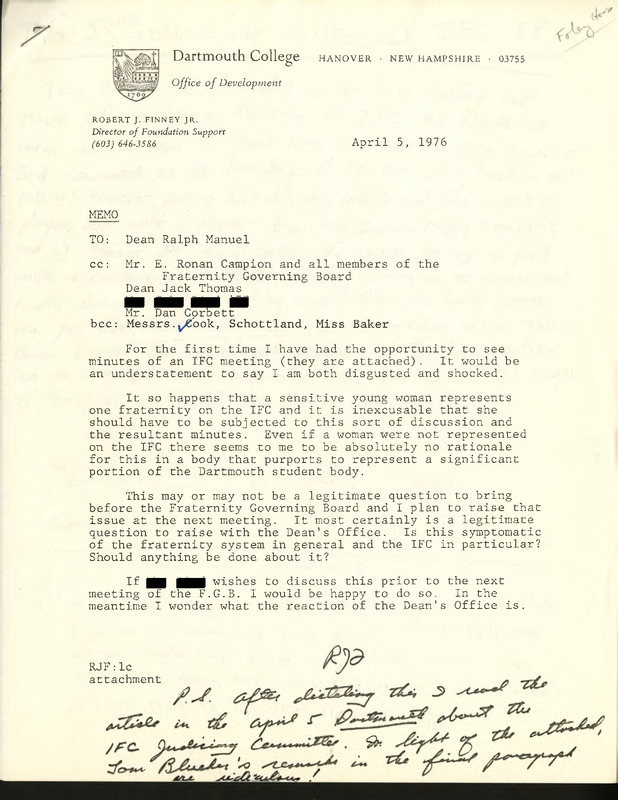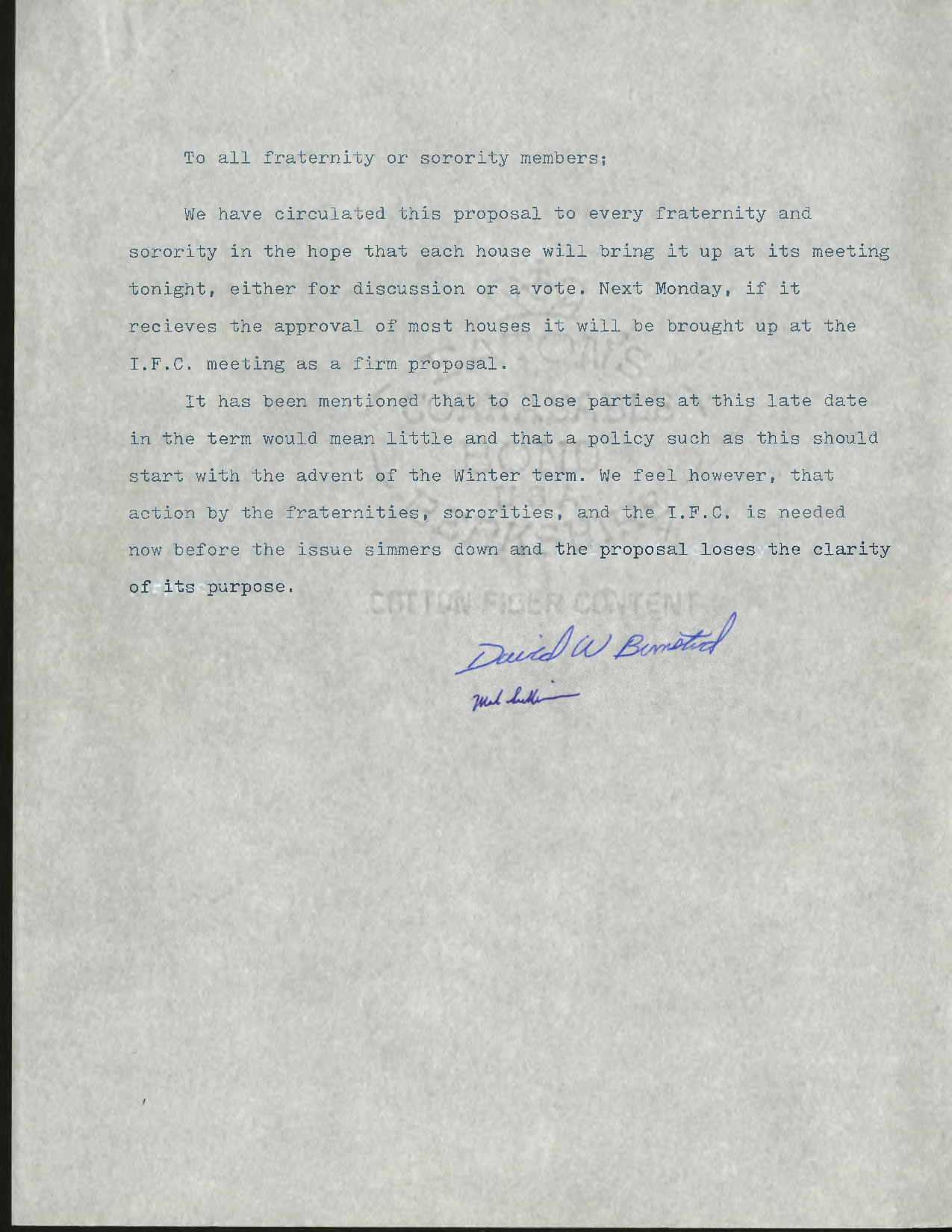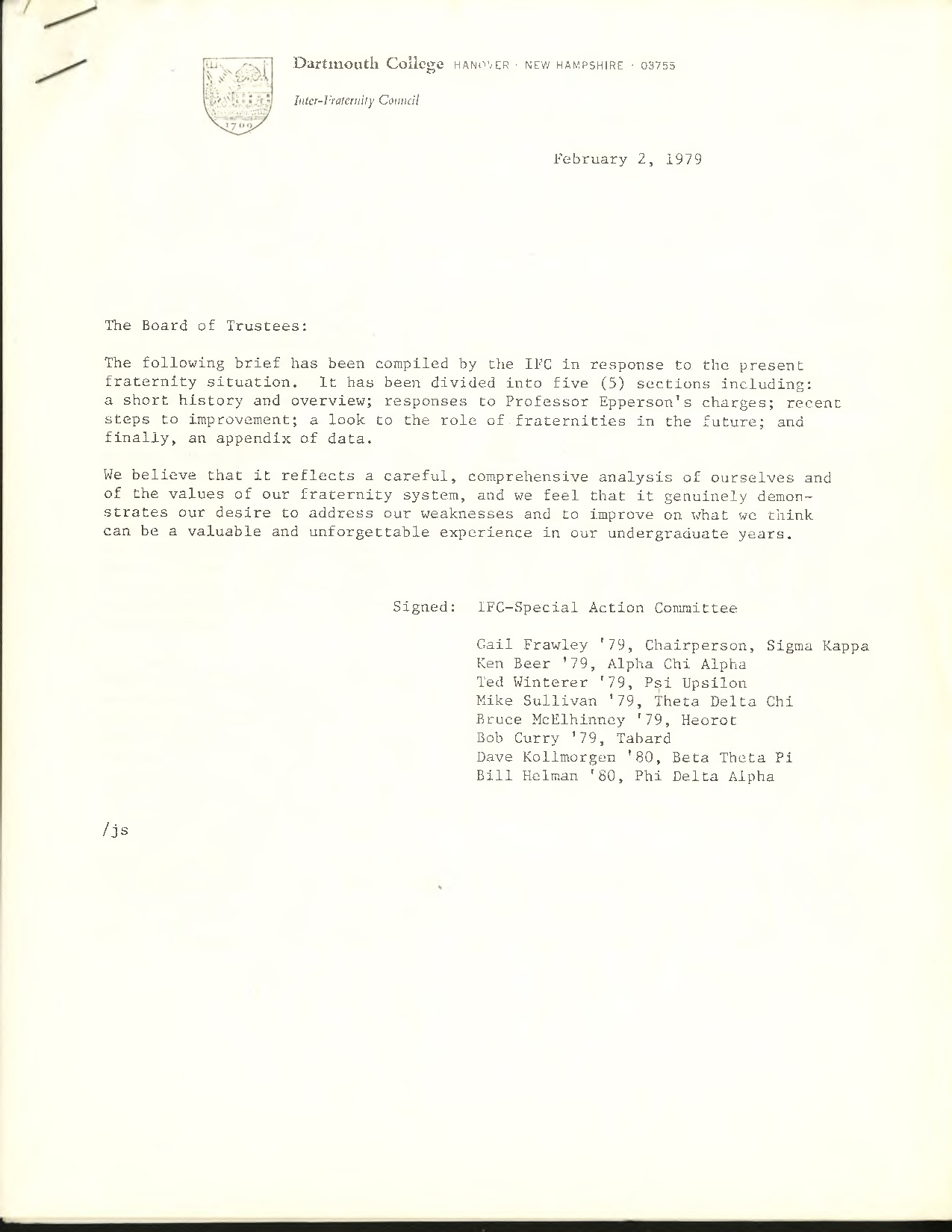The Epperson Proposal 1978
Fed up with the unruly and rambunctious culture of Dartmouth fraternities, on November 6, 1978, English Professor James Epperson gathered a faculty committee and charged the fraternity system on 5 counts: Epperson claimed that the Greek system at Dartmouth perpetuated a culture of racism, sexism, anti-intellectualism, property destruction, and rampant alcohol abuse. At this point, sororities were only beginning to emerge, and for the purposes of this exhibit Epperson was speaking almost directly to fraternity leadership. Testimony was heard from all sides of the debate, with various faculty and students agreeing with Epperson’s charges. Interfraternity Council President Ken Beer ‘79 was also given time to speak in defense. Ultimately, the faculty committee voted 67-16 in support of Epperson’s proposal to abolish Greek life.
Throughout Dartmouth’s history, the fraternity system has faced financial and administrative challenges that threatened to pull the system under. The Epperson proposal is unique in the sense that momentum swelled so quickly, and in the way that Epperson’s indictment of the Greek system was so sweeping. Despite the momentum that this vote appeared to have in the moment, the faculty had little real power in this arena. The Board of Trustees were set to meet in February 1979–three months after the faculty committee decision–to vote on the Epperson proposal. This waiting period gave the Interfraternity Council ample time to prepare their defense.
A week after the faculty vote, the inter-fraternity council hosted their own forum at the Top of the Hop, claiming that “it is time for the IFC, which has been disorganized and tardy in responding to recent criticism, to take initiative and meet this challenge.”[1] This gathering would not accept “a debate on the validity of fraternities,” but instead was intended to be a forum “to discuss future solutions which can help the houses to assume a viable and satisfactory role at the College.”[2]
As this pageant of confidence played out in public, internally the IFC was charting a course of action that would force the Board of Trustees to realize the value of the fraternity system: shutting all fraternity events to only brothers and invited guests. The purported benefits to this proposal were that by making fraternity events more exclusive, the college would realize that the essential service of the fraternity system (free alcohol and entertainment) was too important to give up. It was also during this period that the IFC reinstated it’s internal Judiciary Committee as an internal means of regulating fraternity behavior. Linked below, the formal IFC response to the Epperson proposal–sent to the board of Trustees–reflects a degree of professionalism that can only be attributed as a response to the severity of claims brought against the fraternity system.
Ultimately, when the Board of Trustees came together to vote on the Epperson proposal, they decided to instate a probationary period for the entire Greek system, after which the Board would decide on the fate of fraternities. Every house was placed on probation for one year’s time, and houses would be assessed on their ability to reform after three years total time from the Trustees February 1979 vote. Progress was measured through reports by committees made for the purpose of studying fraternities: the Ad Hoc Faculty Committee on Fraternities and the Fraternity Board of Overseers.
[1] IIFC Special Action Committee Response to the Epperson Proposal, February 2, 1979, DA-670, Box 8181, "IFC Response to Epperson," Office of Residential Life Records, Rauner Special Collections Library, Hanover, NH.
[2]Ibid.
From the Archives
Click on an image to access the full document, audio-visual components, and/or metadata associated with that item.
 Historical Accountability Student Research Program
Historical Accountability Student Research Program


